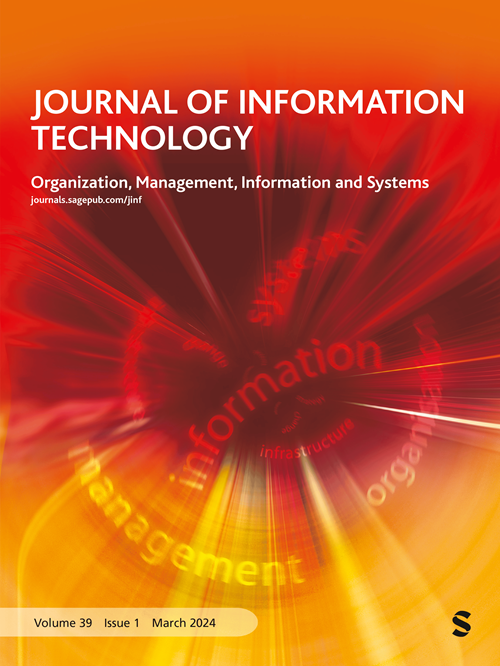数字化和网络能力是商业模式创新和可持续发展绩效的促进因素:环境活力的调节作用
IF 5.4
3区 管理学
Q1 COMPUTER SCIENCE, INFORMATION SYSTEMS
引用次数: 1
摘要
数字化转型是一场因全球大流行病而加速的多学科演习,它涉及技术发展、组织流程、组织间关系和商业模式等方面的变化,影响着组织的绩效和更广泛的环境。为了更好地理解数字化转型的内在机制及其积极和消极的结果,研究人员和从业人员正在探索数字化--即数字技术的应用--如何以及何时能够带来卓越的可持续发展绩效。基于动态能力理论,我们研究了数字化和网络能力对企业可持续发展绩效的影响,并提出商业模式创新(BMI)起着中介作用,而环境活力起着调节作用。经济绩效和环境绩效都被视为可持续发展的子维度。我们对中国制造业企业进行了研究,因为它们面临着进行数字化转型的巨大压力。为了实现广泛的普适性,我们采用了基于调查的方法,以 1,600 家企业为调查对象;我们收到了 255 份完整有效的回复。结果表明,数字化对以新颖性和效率为中心的BMI的影响是由网络能力中介的,而以新颖性和效率为中心的BMI则中介了数字化和网络能力对经济和环境绩效的影响。环境动态也负向调节数字化与以效率为中心的业务绩效指数之间的关系,但它正向调节网络能力对以效率为中心的业务绩效指数的影响。本研究为组织的数字化转型和可持续发展轨迹提供了理论和管理见解,尤其适用于中国制造业企业。本文章由计算机程序翻译,如有差异,请以英文原文为准。
Digitalization and network capability as enablers of business model innovation and sustainability performance: The moderating effect of environmental dynamism
As a multidisciplinary maneuver accelerated by the global pandemic, digital transformation involves changes in technological development, organizational processes, inter-organizational relationships, and business models that influence the organization’s performance and the wider environment. To better understand the inherent mechanisms of digital transformation and their positive and negative outcomes, researchers and practitioners are exploring how and when digitalization—that is, the application of digital technologies—can lead to superior sustainability performance. Based on dynamic capabilities theory, we investigate the influence of digitalization and network capability on firms’ sustainability performance, and we propose that business model innovation (BMI) plays a mediating role while environmental dynamism plays a moderating role. Both economic and environmental performance are considered subdimensions of sustainability. We examine Chinese manufacturing firms because they are under tremendous pressure to undertake digital transformation. To achieve broad generalizability, our survey-based methodology targeted 1,600 firms; we received 255 completed and validated responses. The results indicate that the effects of digitalization on novelty- and efficiency-centered BMI are mediated by network capability and that both novelty- and efficiency-centered BMI mediate the effects of digitalization and network capability on economic and environmental performance. Environmental dynamism also negatively moderates the relationship between digitalization and efficiency-centered BMI; however, it positively moderates the effect of network capability on efficiency-centered BMI. This study provides theoretical and managerial insights into organizations’ trajectories toward digital transformation and sustainable development, with special applicability to Chinese manufacturing firms.
求助全文
通过发布文献求助,成功后即可免费获取论文全文。
去求助
来源期刊

Journal of Information Technology
工程技术-计算机:信息系统
CiteScore
10.00
自引率
1.80%
发文量
19
审稿时长
>12 weeks
期刊介绍:
The aim of the Journal of Information Technology (JIT) is to provide academically robust papers, research, critical reviews and opinions on the organisational, social and management issues associated with significant information-based technologies. It is designed to be read by academics, scholars, advanced students, reflective practitioners, and those seeking an update on current experience and future prospects in relation to contemporary information and communications technology themes.
JIT focuses on new research addressing technology and the management of IT, including strategy, change, infrastructure, human resources, sourcing, system development and implementation, communications, technology developments, technology futures, national policies and standards. It also publishes articles that advance our understanding and application of research approaches and methods.
 求助内容:
求助内容: 应助结果提醒方式:
应助结果提醒方式:


